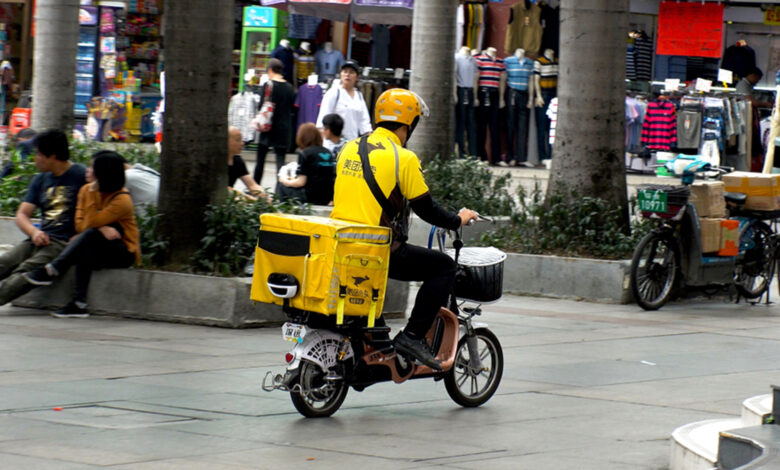
Chinese authorities announced new regulations that will reduce the food delivery platforms’ service fees charged to restaurants to lower the operating costs for food and beverage businesses.
Meituan’s stock sank 15% on Friday, erasing over $25 billion in market value. Alibaba, which operates Meituan’s archrival Ele.me, saw its shares slide about 4%.
Between 2016 and 2020, the number of people who ordered food online in China doubled to 400 million.
When the two companies, Meituan and Ele.me, dominated the market, they raised fees on merchants. But a new regulatory change is about to hobble their profit model.
That proposal came in a directive led by China’s National Development and Reform Commission, the country’s state planner, to help struggling service industries recover.
The new rule will likely taper the profits of the internet behemoths in the long run, and commissions contributed as much as 60% to Meituan’s revenues in the three months ended September 2021.
Regardless that food delivery remains its most significant revenue driver, the firm charges commissions from other merchants like hotels. Food delivery has been one of Alibaba’s main businesses following the firm’s acquisition of Ele.me in 2018, but e-commerce is still the giant’s main revenue engine.
A viral article from 2020 brought to light the high-stress environment that put China’s millions of food delivery workers in danger, like road accidents, and that is changes that could erode China’s food delivery platforms profitability.
Submitting to Chinese authorities orders to food delivery platforms to improve the safety of their workers, Meituan and Alibaba began giving riders connected helmets that come with voice command functions, so drivers won’t need to check their phones while dashing down the street on their scooters.
The platforms also have relaxed delivery time limits for riders. The challenge for Meituan and Ele.me is how to balance workers’ well-being and business profitability.
To reduce its reliance on manual labor, Meituan recently showcased a fleet of food-delivery drones running small-scale trials in several Chinese cities.
The flyer is in its early stage of product iteration and regulations for low-altitude drones are still taking shape in China. The economic viability of drone-enabled food delivery is also unproven. But automation is at least one way for labor-intensive, on-demand services providers like Meituan to test out a safer, more cost-saving future.


